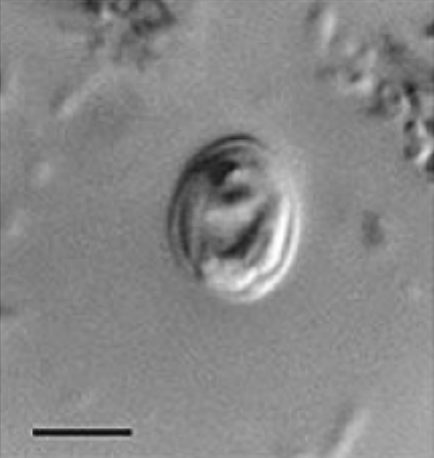Residents of Devon have been instructed to boil tap water before drinking it after 46 confirmed cases and over 100 suspected cases of parasitic disease in the water.
The primarily waterborne parasite, cryptosporidium, informally known as “crypto”, can cause cryptosporidiosis, impacting between 3,000 and 6,000 people in the United Kingdom every year, with symptoms developing between one and 12 days after infection.
Most healthy people tend to fully recover but can be fatal for immunocompromised people.

South West Water detected “small traces” of cryptosporidium in the Hillhead reservoir near the seaside town of Brixham, which serves around 40,000 people, and set up two bottled water stations in affected areas open from 6 am until 9 pm. Vulnerable customers are receiving deliveries of bottled water and the company have advised people in Brixham, Broadsands, Churston, Galmpton, Hookhills, Kingswear and White Rock to boil tap water before drinking it.
Eden Park Primary and Nursery School in Brixham has been closed due to the lack of potable drinking water. Meanwhile, Churston Ferrers Grammar School in Galmpton remains open, but water fountains have been shut off. Students have been advised to bring bottled water, supplemented by limited supplies from South West Water.
Sarah Bird, a health protection consultant at the UK Health Security Agency South West, urged residents to follow South West Water’s advice and boil their drinking water. She emphasized the importance of hydration, particularly for those experiencing symptoms of diarrhoea. Typical symptoms include dehydration, fever, stomach pains, watery diarrhoea, and weight loss. Although most cases resolve without medical intervention, individuals with severe symptoms such as bloody diarrhoea or prolonged illness should contact NHS 111 or their GP. Cryptosporidiosis usually lasts about two weeks but can persist longer, and symptoms can reappear after seeming to improve.
Bird also advised that those affected should stay off work or school for 48 hours after symptoms subside and avoid swimming pools for 14 days, as cryptosporidium can survive in chlorinated water. South West Water’s head of water quality, Chris Rockey, confirmed the necessity of boiling water for drinking, cooking, and oral hygiene until further notice. He assured that the company is working with health officials to monitor the situation but could not specify how long the boiling advisory would remain in effect.
A company spokesperson apologized for the inconvenience and announced a customer credit increase from £15 to £115. Anthony Mangnal, the Conservative MP for Totnes, expressed frustration over South West Water’s delayed response, fearing it had undermined public trust in the water supply.
Laura Flowerdew, South West Water’s chief customer officer, acknowledged that earlier communication might have been inadequate. She suggested a damaged air pipe in a cattle field as the likely cause of contamination.
Elaine Hollier, 80, was the first to be hospitalized with severe dehydration and vomiting, leading to the discovery of the parasite. Harriet Oakley, a mother of two, criticized South West Water for initially claiming the water was safe, leaving supermarket shelves empty of bottled water. Anne Kelly-Groucutt, manager of Hortus House B&B in Brixham, reported cancellations and concern following the announcement.
Jane Boyle of Hillhead noted prolonged illness in her area, initially mistaken for food poisoning. Another resident voiced disgust over the widespread illness in their community.
Prof. Paul Hunter, an infectious diseases expert from the University of East Anglia and WHO consultant, explained that even if the contamination source is eliminated, new cases may emerge for up to 10 days. He stressed the necessity of boiling water and highlighted the ageing British water infrastructure as a potential risk for future incidents, though he reassured that British drinking water remains among the safest in the world.





















